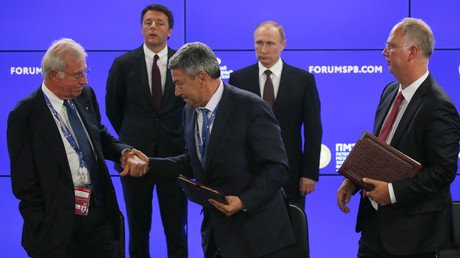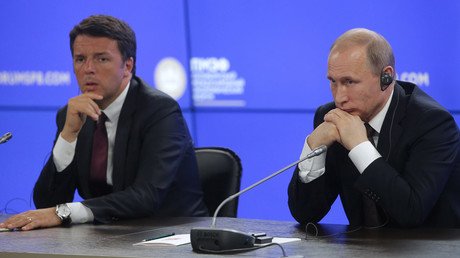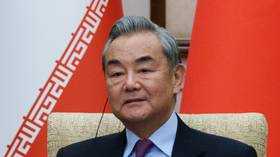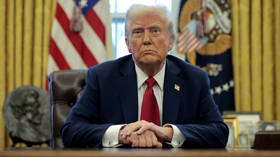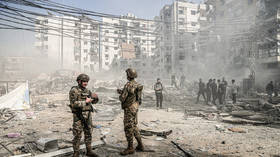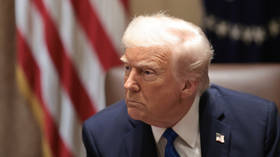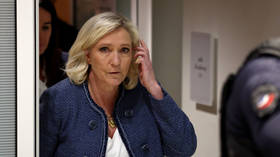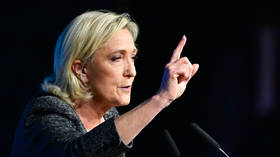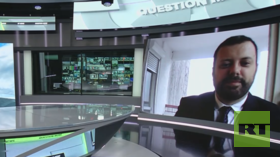Time to send ‘strong signal’ to Russia and gradually lift sanctions – Austrian FM
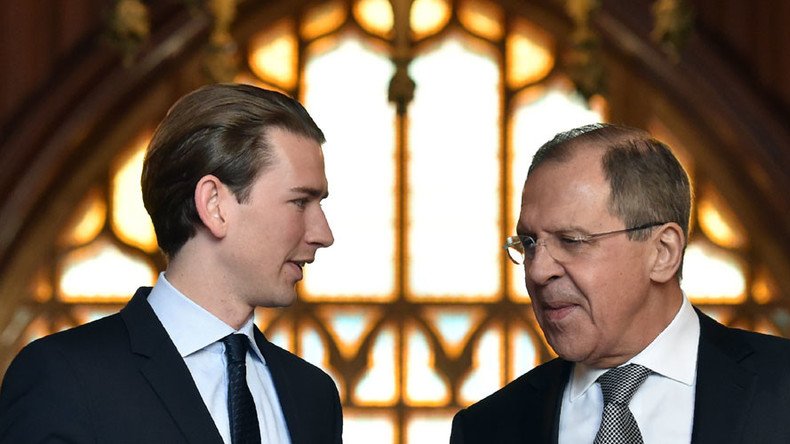
Russia sanctions should gradually be lifted in return for each step forward on the Minsk agreement, Austrian Foreign Minister Sebastian Kurz said ahead of an EU summit that will likely extend the restrictions for another six months.
The time has come for the EU to send a message to Russia and pave the way for dialogue, Kurz said on Sunday.
"I believe that we should gradually come to a mode in which for every implementation of the Minsk Protocol, for every single step, sanctions will gradually be lifted in return," he told an ORF TV show. Kurz has stressed that this would be “a very strong signal of accommodation” and expressed hope that it will be received “appropriately.”
His remarks come as the EU summit next week is likely to extend for another six months the economic sanctions imposed on Russia in 2014. Moscow was accused by Brussels of annexing Crimea, which joined Russia following a referendum, and supporting rebels in eastern Ukraine.
Brussels still maintains the restrictions will be lifted once the Minsk peace accords signed by the leaders of France, Germany, Russia and Ukraine are implemented in full. However, a number of EU member states have said the “all-or-nothing” approach is counterproductive, and called for more flexibility.
On Sunday, German Foreign Minister Frank-Walter Steinmeier said the sanctions “are not an end in themselves,” stressing that “they should rather give incentives for a change in behavior,” according to Reuters.
The minister added that “an all-or-nothing approach, even if it sounds good, doesn't work.” He reiterated the restrictions may be lifted gradually if Moscow “did its part” in implementing the Minsk accords.
Speaking at the St. Petersburg International Economic Forum (SPIEF) on Friday, Russian President Vladimir Putin said Moscow could lift the counter-sanctions first, but the move must be followed by reciprocal steps from the EU. He also emphasized that Russia is ready “to meet our European partners halfway,” adding: "But it certainly cannot be a one-way game."
Previously, Berlin admitted that growing dissent among EU member states on Russia sanctions makes it more difficult to automatically prolong them when they expire on July 31.
Other leaders across Europe have said the sanctions damage mutual trade, harm businesses and result in minimal political outcomes. In June, the French Senate almost unanimously voted in favor of a resolution for a “gradual relief” of the restrictive measures.
In May, Hungarian Foreign Minister Peter Szijjarto said Budapest disagrees with the automatic extension of the Russia sanctions, claiming that the decision to extend them “was made behind the scenes.”
The EU imposed economic sanctions on Russia in July 2014, targeting the financial, energy and defense sectors, along with a number of government officials, businessmen and public figures. Moscow responded by imposing an embargo on agricultural products, food and raw materials against countries that joined the sanctions regime.
